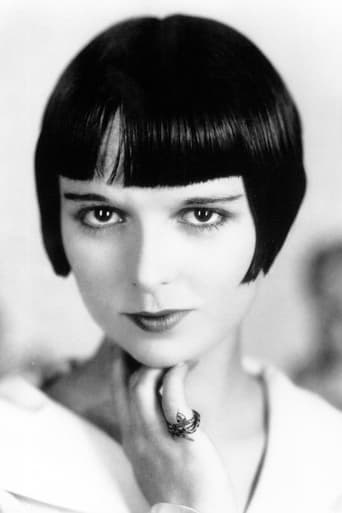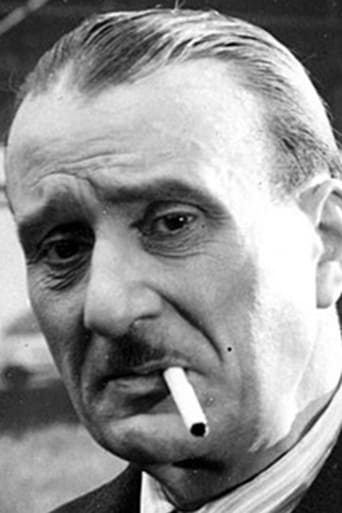Kailansorac
Clever, believable, and super fun to watch. It totally has replay value.
Neive Bellamy
Excellent and certainly provocative... If nothing else, the film is a real conversation starter.
Roman Sampson
One of the most extraordinary films you will see this year. Take that as you want.
Zlatica
One of the worst ways to make a cult movie is to set out to make a cult movie.
kirksworks
This is full of major spoilers, so beware."Prix de Beaute" always suffers in comparison to the two films Louise Brooks made with G. W. Pabst, "Pandora's Box" and "Diary of a Lost Girl," but in some ways, "Prix" is the quintessential Brooks film. Here she has a chance to be charming without the dark side of her Pabst collaboration. What "Prix" has that the Pabst films don't is music. In this early French film, the whole Louise Brooks mystique is fleshed out powerfully with a conjunction of image, song and music. The Charleston is what seems most associated with Brooks (she was the first to dance it in Europe), but the essence of the actress comes across more strongly in the tango. The tango also plays a plot point in "Prix," being the music she danced with on her short rise to stardom after becoming Miss Europe. Later, when she has forsaken her fame in favor of a mundane existence as the wife of jealous husband Andre, the longing for her forsaken fame becomes apparent when the same tango record is seen on her apartment record player. So appropriate is the tango to Brooks it is used to accompany the documentary about her life, "Looking for Lulu," a film narrated by Shirley Maclaine. The brazen and forceful quality of the tango epitomizes Louise Brooks' strong-headed but elegant and erotic individuality. The song, "Je n'ai qu'un amour, c'est toi," adds an immense amount of pathos to what is not a great film (but a very good one). By the way, Brooks' voice was not dubbed for the film by Edith Piaf as some have claimed. Piaf was born in 1915, and wasn't discovered until 1935. The song, however, is what Brooks' character, Lucienne, sings to Andre at the beginning of the film to cheer him up and express her deep affection for him. And at the climax it is the song she sings for her screen test, which she views with the producers and managers who intend to shape her career. It continues on screen after husband Andre, who has followed her to the screening room, shoots and kills her. In a single shot, with Lucienne's dead body in repose at the bottom of the screen while her screen test continues above with the song she once sang to Andre, the essence of what movies do that other art forms do not is perfectly characterized. As Andre watches his now dead wife sing to him on screen, the murder weapon still smoking, he subtly smiles. She is now his forever, and by association, ours. Coincidentally, Louise Brooks real life career crashed and burned after "Prix de Beaute," so it was also the death of her final starring roll as well. This film really seals the Brooks mystique more so than the Pabst films (which are superior films, no doubt). It also points out what it is about the movies that create the whole idea of the "cult" of the movies - where people like Brooks, James Dean and Marilyn Monroe live on more intensely after their death than when they were alive.
Igenlode Wordsmith
We saw the silent version of this film, and it is quite simply shimmeringly beautiful. It's quite hard to see how a sound version could have been created, since it is shot with pure silent technique, long wordless sweeps of narrative without a single intertitle -- save for a few disconcerting sequences where Louise Brooks, playing a French typist, is quite visibly speaking in English... The only section that obviously cries out for sound is the final scene, where Brooks is watching the rushes for her test 'for a sound film': footage which plays constantly in the background as the action unfolds, with her mouth moving in ceaseless soundless song. I was unsurprised to learn afterwards that this passage alone in the talkie version had been hailed as an exemplar of new technique! In the sunny beauty of its opening scenes and the fairy-tale inevitability of what follows, the film resembles a dream. As a 'Louise Brooks movie' it was not at all what I was expecting, either from her Hollywood comedies or from G.W.Pabst's German melodramas: I found the idiom more fluent and enjoyable than either, and Brooks herself is a different creature, a sturdy laughing young animal rather than a shop-window vamp or manipulated doll.But what gives this film greater depth than at first appears is the unexpected second half; repelled by the rich parasites who cluster around her beauty, the pauper princess returns to a tear-stained reunion with her humbly-born true love... and the tale might very well have been ended there. Fairy-tale, however, turns to tragedy. The dilettante Grabovsky, confident in his ability to manipulate the woman he desires, is yet all too correct in his self-interested prediction -- the young lovers cannot make each other happy -- and André, ironically, was right to mistrust the social influence of beauty contests: after the intoxication of her moment's glory, Lucienne frets herself to despair over the humdrum routine of married life while her husband, in turn, is driven wild by any reminder of the whole affair. If it were a simple case of a mis-matched marriage, that would be one thing... but the true tragedy is that they do love each other.In many ways "Prix de Beauté" reminds me of Murnau's "Sunrise". But if so, the fairground and photographer scenes here would form a distorted mirror-image of the joyous reconciliation in "Sunrise"; no dream but an alienating nightmare. And the following dawn brings not a miraculous reunion but an empty bed and deserted home. Leaving a letter to say that she loves him and will always love him, Lucienne vanishes again from André's life in quest of brightness and freedom; and this time she will never come back.Gossip columns confirm all André's worst convictions, as he learns of his wife's whereabouts through reports coupling her name with Grabovsky. When the young workman penetrates at last to the lavish sanctum of the screening-room, it is with drawn gun -- to be greeted by the sight of his rival courting and caressing a laughing Lucienne, the same woman who had pledged her undying affection as she left him. He kills her, but even as he kills is transfixed by the living image on screen, Lucienne in all her transformed glory as he never saw her. The two women are juxtaposed in an endless, powerful moment, as André is seen, seized, unresisting, and pulled away: the dying girl and her singing self still projected above, caught unknowing out of time into celluloid eternity, playing on unconscious of life or death or love beneath her...The main jarring element in the film is the character of André's co-worker Antonin, who appears to serve no role throughout other than to be the licensed butt of his contemporaries' malice. He is the ugly one who can never get the girl, the ungainly wimp who is tripped and tormented in the washrooms and at work, and must take it all with an uncertain ingratiating smile in his fruitless hope for social acceptance: a typical product of the bullying of the more gifted and popular, in other words, but one the audience is apparently being invited to laugh at along with his tormentors. Unless the intention is to expose a darker side to the protagonists (for which I perceive no sign), the character seems to exist merely as comic relief, but comic relief with a distinctly nasty edge. When we know him only as an inept Peeping Tom at the waterside, it's easy to laugh, although the others' revenge seems a little over the top; when we discover that he is no chance-met stranger but André's colleague and regular sidekick, the continuing attacks rapidly cease to be very funny.But it is the images that remain. Beauty, nightmare, and dream.
Curra Weisledge
I think I truly love this film . "Prix de Beaute" was originally a silent film but later dubbed into French in 1930. Despite having someone else's voice dubbed over hers, this remains a stunning tour de force for Louis Brooks. The fact that her singing voice is dubbed by the legendary Edith Piaf helps to mollify us purists about the dubbing deception. This is the story of Lulu and we first see her at a resort with her macho boyfriend, Andre (Georges Charlia) and their friend Antonin (Augusto Bandini). Lulu enters the frame as a pair of legs: we see her inside the car changing into her bathing costume. Lulu is very free with showing off her body and this does not sit well with the irksome Andre. When Lulu considers applying for the title of 'Miss Europe' we know that a happy ending is not going to be sitting at the end of Easy Street. The film seems to focus a lot on men ogling beautiful women. We see plenty of bathing beauties and the reactions of the men staring at them. But at the center of it all is the magnificent Louise Brooks. If you don't mind watching films from the bygone eras, then consider checking out this one. Louise Brooks is not a name that most average movie buffs may readily know but as soon as you see her you will be mesmerised and you'll want to know more. Also check her out in 'Pandora's Box' if you can find it.Be wary of the US Kino DVD release. I don't know if their projection speed is correct. A lot of the scenes appear to be shown at too fast a speed. This may have been the way they were shot. I don't know. But since it's the only way to see this film, it's worth swallowing that one minor bitter pill.
Louise-14
Artisticly shot, actors portray exactly their role. You get a real feeling watching Lucienne ascend from poverty to the most beautiful girl around. A sense of tragedy to triumph to tragedy again. All in all I have seen this film at least 10 times. And can VERY well say that Prix De Beute' (the Beauty Prize, Miss Europe) is a MAJOR favorite in my silent film collection. The expressiveness of Louise Brooks is perfect and I recommend this film to ANYONE who appreciates artistic beauty coupled with a tragic story line.


